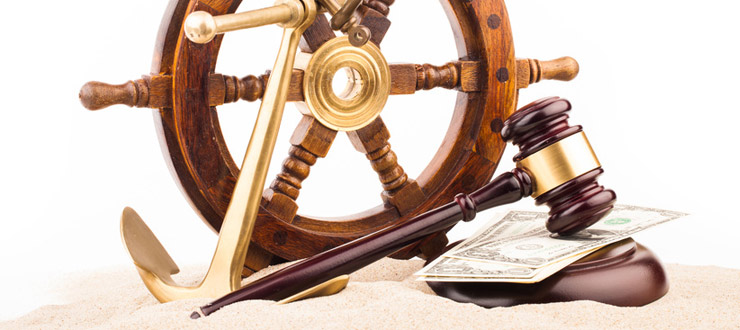- Posted on
- • Uncategorized
Understanding Maritime Law in Nigeria
- Author
-
-

- User
- Fidel Bassey Esq
- Posts by this author
- Author
- Posts by this author
-
⚓ Understanding Maritime Law in Nigeria: Navigating Legal Waters with Confidence

Maritime Law, also known as Admiralty Law, governs all activities conducted on navigable waters. In Nigeria — a nation with over 850 km of coastline and multiple active seaports — maritime law plays a critical role in economic growth, trade facilitation, and international relations.
At Transafrican Legal Practice, we bring clarity and strategic legal guidance to a sector that is complex, high-stakes, and globally connected.
🚢 What Is Maritime Law?
Maritime Law refers to the body of laws, conventions, and treaties that regulate private maritime business and other nautical matters such as shipping, marine commerce, seafarer rights, and marine navigation. In Nigeria, maritime law is enforced through domestic statutes and international treaties ratified by the government.
🛳️ Key Areas of Maritime Legal Practice
1. Shipping & Carriage of Goods
We assist shipping companies, exporters, and insurers in drafting and enforcing charter parties, bills of lading, and shipping contracts.
2. Marine Insurance
From cargo damage to vessel collisions, we advise on insurance claims and regulatory compliance under Nigerian and international insurance standards.
3. Vessel Registration & Ownership
Our firm offers legal guidance on ship registration under the Nigerian Maritime Administration and Safety Agency (NIMASA), flagging issues, and ownership structuring.
4. Port Operations & Logistics
We support port users, terminal operators, and logistics firms in negotiating leases, resolving disputes, and navigating compliance with Nigerian Ports Authority (NPA) regulations.
5. Admiralty Litigation
We represent clients in admiralty courts on matters such as ship arrest, salvage claims, pollution disputes, and enforcement of maritime liens.
🌍 International Treaties Nigeria Recognizes
Nigeria is a signatory to several key maritime treaties including:
- United Nations Convention on the Law of the Sea (UNCLOS)
- International Convention for the Safety of Life at Sea (SOLAS)
- Maritime Labour Convention (MLC)
- Convention on Limitation of Liability for Maritime Claims (LLMC)
Our firm advises clients on how these international standards apply within Nigeria’s jurisdiction.
📌 Why Maritime Law Matters in Nigeria
- Trade: Over 90% of Nigeria’s imports and exports are via sea.
- Security: Legal control of Nigerian waters is key to addressing piracy and smuggling.
- Investment: Proper maritime governance attracts foreign direct investment (FDI).
- Environmental Protection: Legal enforcement prevents maritime pollution and safeguards marine ecosystems.
🧭 How We Can Help
At Transafrican Legal Practice, our maritime law team offers:
- Legal audits for shipping companies
- Representation in admiralty courts
- Advisory on vessel leasing, crewing, and safety compliance
- Drafting and reviewing port usage and logistics contracts
- Dispute resolution and arbitration
📞 Speak With Our Maritime Law Experts
📍 Murjanatu House, 1 Zambezi Crescent, Maitama, Abuja
📧 info@transafricanlegal.com
🌐 transafricanlegal.com
“In the law of the sea, as on the high seas, knowledge is power — and the right counsel is key.”
— Transafrican Legal Practice
Disclaimer: This article is intended for general informational purposes only and does not constitute legal advice. For tailored legal solutions, please consult a qualified attorney.
